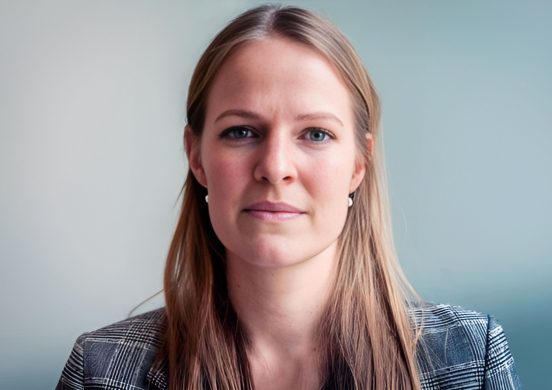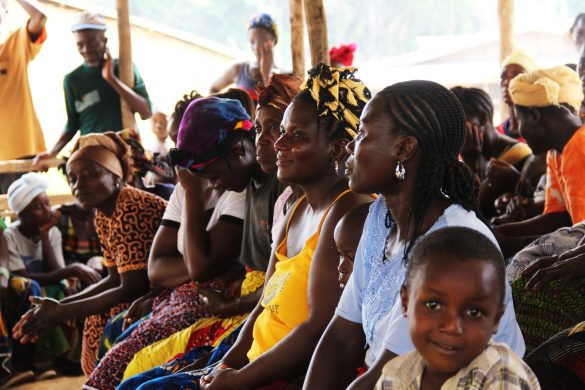Mens dansk bistand til u-landenes jordbrug, især småbønderne, er nede i en rekordagtig bølgedal, som det fremgår af u-landsnyts debatserie, er der ved at komme andre boller på suppen hos klodens største multilaterale donor, den mægtige Verdensbank i Washington D.C. efter advarsler om, at en ny fødevarekrise lurer i horisonten.
Banken skriver onsdag på sit website:
Three leaders in the global fight against hunger warned Tuesday that the world needs to be prepared for another food crisis and take steps now to build food security in developing countries.
Low food stocks, rising cereal prices, and the possibility some rice-producing countries will have to import rice next year suggest food prices may rise in 2010.
– I worry we could be through another round of this… we could see ourselves in 2010 repeating some of this problem, World Bank President Robert B. Zoellick said at a panel discussion on the global food crisis at the Brookings Institution in Washington.
Zoellick said, that low food stocks and shortages could force food prices up in 2010. – Crop shortages in India and the Philippines combined with increased fund speculation in commodity markets have increased the risk that food prices could spike, similar to what happened in 2008, Zoellick stressed.
Food prices are expected to remain high and volatile, and will continue to hit developing countries the hardest.
Zoellick said high food prices are caused by a variety of factors:
– You combine low stocks with some exogenous (beslægtede) events. In this case one of them was droughts, some difficult weather conditions, and then a linkage that has changed from the past is we have seen a much closer linkage between fuel and food prices, noted he.
Zoellick also attributed high food prices to the flood of investment into commodities, especially food, in addition to increased export barriers.
The Brookings panel included Zoellick, Josette Sheeran, executive director of the United Nations World Food Programme, and Samuel Worthington, president of Interaction, the largest alliance of relief and development nongovernmental organizations in the United States.
WFP-CHEF: IKKE ET ÉNGANGS-FÆNOMEN, SIDSTE KRISE VAR BARE FØRSTE ALARM
– On the food crisis, I do not think it was a one-off phenomenon. I think it was a wake-up call, noted Josette Sheeran, whose organization provides food assistance to more than 102 million people in 78 countries.
She said the cost of cereal has risen 17 percent, and international food prices are 50 percent higher than just five years ago.
The food crisis “exposed fault lines in access to food from the village level up to the national, regional, and global level. And I think what we are seeing today with the financial crisis is a compounding issue that’s driving up the numbers of hungry in the world, the WFP-boss said.
– Almost 230 million children and adults wake up each morning unsure whether they will be able to get even a cup of food, Sheeran said.
– This is inherently destabilizing. It is unacceptable, and in fact the numbers keep increasing. In just the past two years the numbers went from 846 million to over a billion, said Sheeran.
Some of the elements that drove up food prices two years ago are still in play, said Zoellick. For instance, food stocks were low before the crisis and remain low today. Commodities have become an “asset class” for investment, making them potentially more volatile.
In addition, there is a “much closer linkage” between fuel and food prices than before the food crisis. When oil prices rise, so do food prices, noted he.
He said the World Food Programme, as the main organization providing emergency food aid, should receive more predictable, longer-term funding. Currently, WFP must raise money “from scratch” each year – “a very difficult task”.
Rules should also be in place to prevent hoarding of food, Zoellick said. During the food crisis, export restrictions and bans affected even purchases by the World Food Programme and for humanitarian purposes.
NY FOND FOR LANDBRUGSBISTAND
Meanwhile, Zoellick also said, that the World Bank will start a trust fund to boost agriculture in poor countries with an initial 1,5 billion US dollar (7,5 milliarder DKR).
The multi-donor trust fund to boost agricultural assistance is scheduled to go to the Banks Board in January.
Earlier on, the Bank increased agricultural investment to 6 billion dollar this fiscal year (finansår) in response to a report (World Development Report 2008) finding a strong link between agricultural investment and overcoming poverty.
The Bank also increased support for social safety nets, such as school feeding programs, during the food and financial crises. The Banks fund for the poorest countries, the International Development Association, accelerated assistance, disbursing (udbetale) close to 14 billion dollar from July 2008 to October 2009.
The Bank, too, is working with the Gates Foundation on promoting agricultural research and development, such as enhanced seeds, to increase agricultural productivity, particularly in Africa.
World Development Report 2008, der har u-landenes jordbrug som tema, kan ses på
http://econ.worldbank.org/WBSITE/EXTERNAL/EXTDEC/EXTRESEARCH/EXTWDRS/EXTWDR2008/0,,menuPK:2795178~pagePK:64167702~piPK:64167676~theSitePK:2795143,00.html
Kilde: www.worldbank.org














